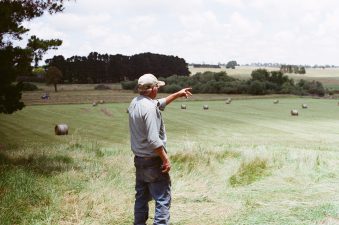 The sun may be setting on a popular morning brew. According to a new report issued by the Climate Institute, global warming will underpin an estimated 50 percent drop in coffee production by 2050. Bad news for coffee lovers, but catastrophic for the 120 million people in dozens of mostly developing nations who depend on the coffee trade to make ends meet.
The sun may be setting on a popular morning brew. According to a new report issued by the Climate Institute, global warming will underpin an estimated 50 percent drop in coffee production by 2050. Bad news for coffee lovers, but catastrophic for the 120 million people in dozens of mostly developing nations who depend on the coffee trade to make ends meet.
The report predicts that worldwide coffee production will drop by half over the next three decades due to climbing temperatures and changing rainfall patterns, rendering regions historically suited for coffee cultivation unable to meet global demand. Production may be forced to move away from low-level equatorial regions and higher up into forested mountains causing new negative ecological impacts. Significantly altered micro-climates will affect both coffee quality and yield sizes.
Climate change is creating more coffee plant disease
“It’s not just the heat, which is a big factor which is driving some of the regions where coffee is produced uphill,” John Connor, Climate Institute’s chief executive officer, told ABC. “We’re also seeing extra diseases increasing and being able to go up into those areas.”
The overall outlook is bleak, although earlier studies had indicated that Honduras, Indonesia and Vietnam are producing more coffee than usual. Mexican coffee fields will become “nonviable” first, followed quickly by Nicaragua; both regions are expected to lose commercial productivity by 2050.
Brazil, the world’s largest coffee grower, has been crippled by heat waves since 2014, which have devastated harvests and prompted retail price hikes.
Coffee has grown increasingly gimmicky in our lifetime. It’s earned faux foreign-language drink names and secret drinks menus at top franchises. We can sip coffee crapped out of a marsupial’s bum and crunch edible coffee cups.
Lady Gaga donned a dress made from coffee filters and Green Prophet even brought you 15 #LifeHacks using coffee grounds. But all that spin-off is done if the beans disappear.

NEW YORK, NY – AUGUST 19: Singer Lady Gaga enters the “Good Morning America” taping at the ABC Times Square Studios on August 19, 2013 in New York City. (Photo by Ray Tamarra/Getty Images)
Beans most affected have been popular Robusto and Arabica, the latter requires sequential rainy and dry seasons to mature. This is noteworthy since Arabica beans, which originated in mountainous regions of Ethiopia and Yemen, are the basis for 75 percent of the world’s coffee. Robusta – so named as it is more tolerant of climactic differences – is expected to become extinct in the Congo (its birthplace) by 2050.
Currently, according to the folks at Climate Institute, we drink about 2.25 billion cups of coffee daily, and global demand is rising. The report concludes that unless climate change is addressed, wild coffee could become extinct worldwide by 2080.
“We have a cloud hovering over our head. It’s dramatically serious. Climate change can have a significant adverse effect in the short term,” Mario Cerutti, a director at Lavazza, one of Italy’s top coffee roasting companies, told Think Progress. “It’s no longer about the future; it’s the present.”
Industry officials have been issuing warnings for years. In 2011, Starbucks director of environmental affairs, Jim Hanna told the Guardian, “What we are really seeing as a company as we look 10, 20, 30 years down the road — if conditions continue as they are — is a potentially significant risk to our supply chain.” Hanna pointed out that farmers were already seeing how climate change was creating severe hurricanes and more resistant bugs.
While big business forms coalitions to press governments to tackle a changing climate, what can the individual coffee drinker do? The report urges consumers to choose carbon-neutral brands and also demand action from companies and governments to ensure all products, business models, and economies are carbon neutral or carbon negative. Green Prophet suggests you also cultivate an appreciation for plain water.
 “Our concern is primarily for the 25 million farmers out there whose entire livelihoods depend on this incredibly important global commodity,” Molly Harriss Olson, chief executive of Fairtrade Australia and New Zealand, which commissioned the report, told ABC. “We’ve got to build a new economy that doesn’t threaten things in our lifestyle such as our coffee.”
“Our concern is primarily for the 25 million farmers out there whose entire livelihoods depend on this incredibly important global commodity,” Molly Harriss Olson, chief executive of Fairtrade Australia and New Zealand, which commissioned the report, told ABC. “We’ve got to build a new economy that doesn’t threaten things in our lifestyle such as our coffee.”
Consider coffee brand Maxwell House and its iconic slogan, Good to the Last Drop!, which may turn out to be the world’s most prescient advertising motto. Download the full report – link here.




One thought on “Coffee extinct by 2080”
Comments are closed.